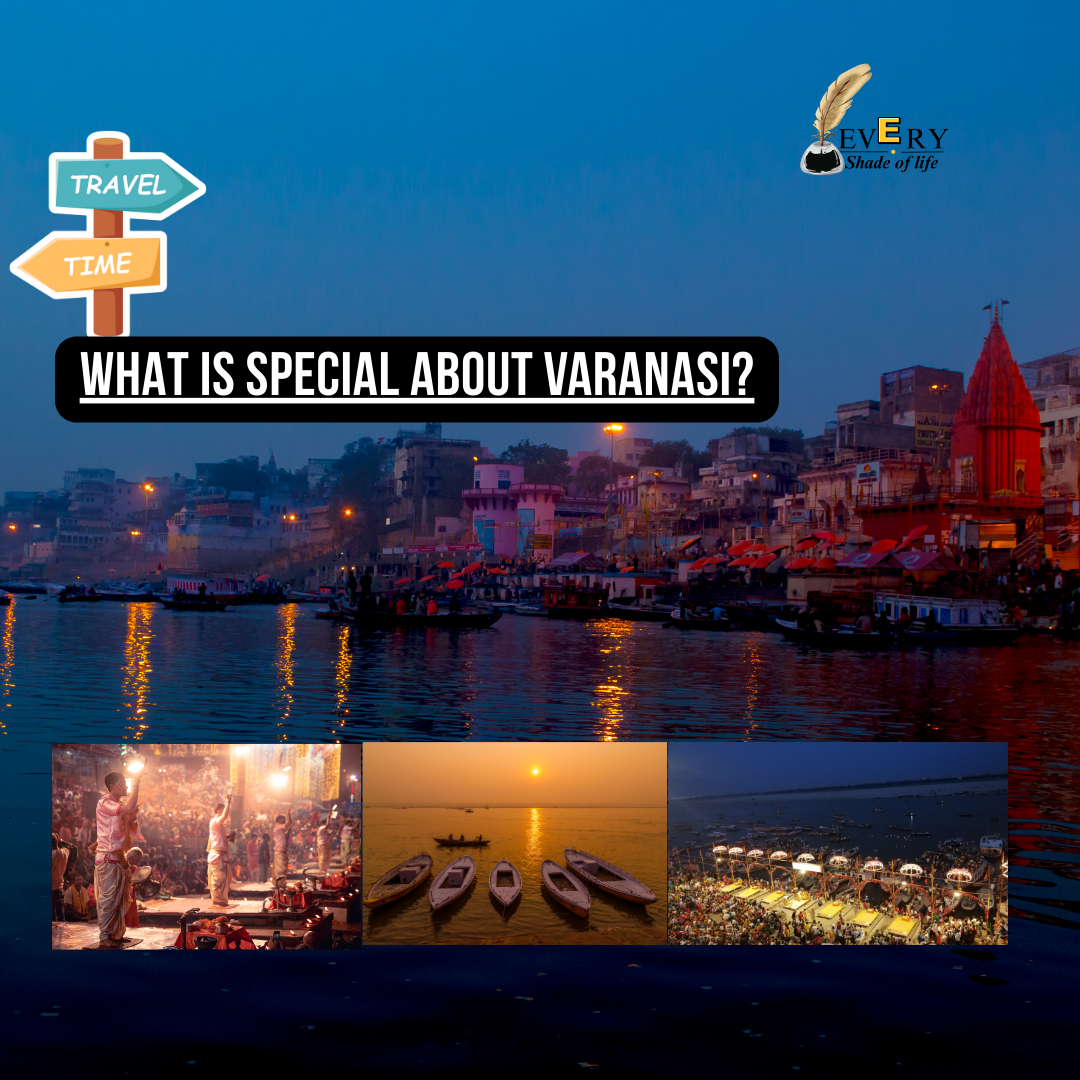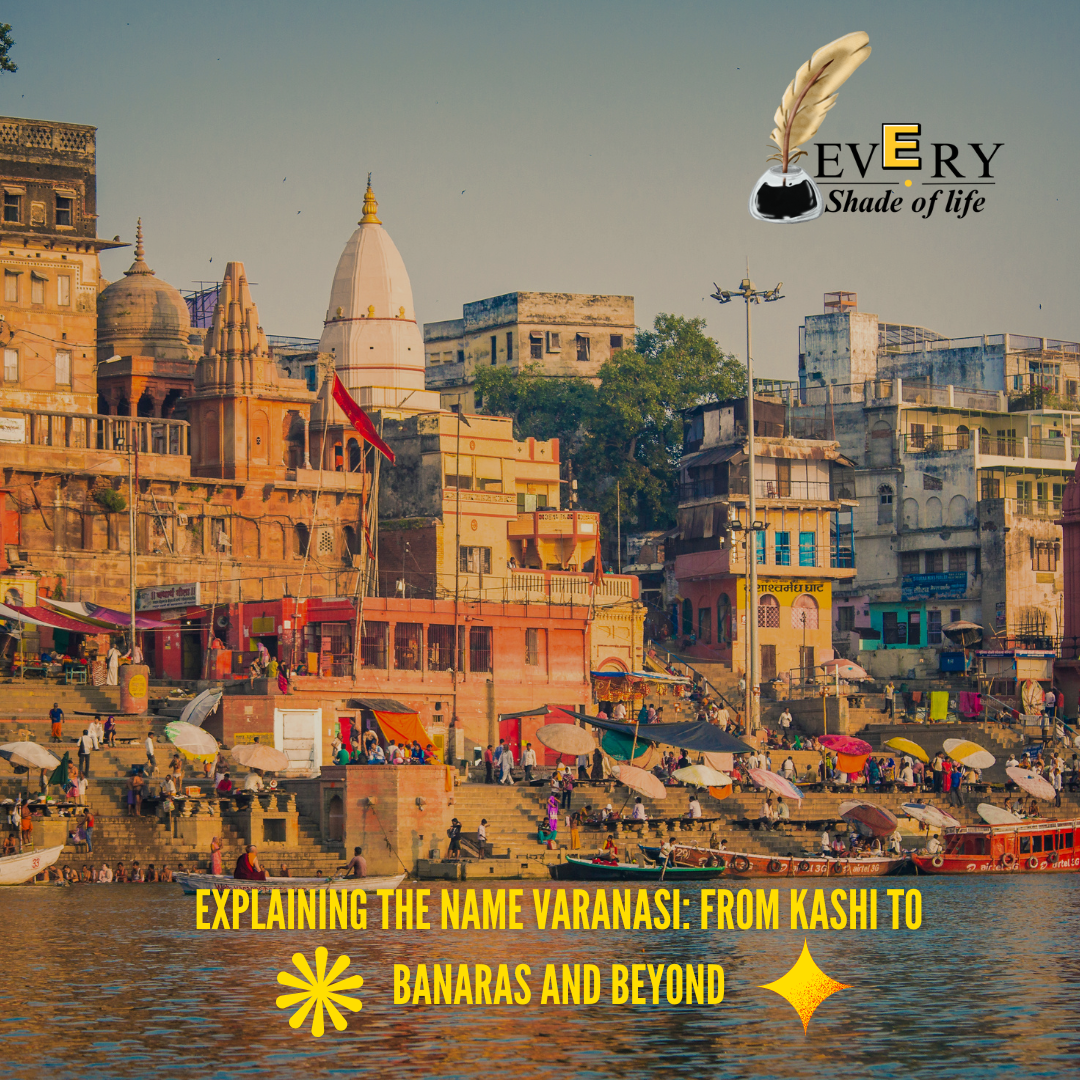
What is Special About Varanasi?
Varanasi, also known as Kashi, is one of the oldest cities in the world, full of history, spirituality, and culture. Located on the banks of the Ganges River, this city holds a special place in the hearts of millions. Known for its deep religious significance, ancient temples, mesmerizing ghats, rich cultural heritage, and delectable street food, Varanasi is not just a city, but an experience that stays with you long after you’ve left. Located on the banks of the sacred Ganges River, Varanasi holds immense importance for Hindus and continues to attract millions of visitors from around the globe each year.
If you are planning a trip to Varanasi, here are some key things to know before you go, ensuring you make the most of your visit to this extraordinary city.
Temples: A Spiritual Haven
Varanasi is home to numerous temples that attract devotees seeking spiritual solace and connection with the divine. These temples, rich in history and architectural grandeur, are vital to the city’s spiritual identity.
- Kashi Vishwanath Temple: A sacred abode of Lord Shiva, this temple is one of the twelve Jyotirlingas and is considered one of the holiest pilgrimage sites in India. It is visited by thousands of pilgrims each year seeking blessings from the Lord.
- Durga Temple: Dedicated to Goddess Durga, this temple is a significant site in Varanasi. The vibrant red color of the temple and its surroundings adds to its spiritual allure.
- Sankat Mochan Hanuman Temple: Known for its lively atmosphere, this temple is dedicated to Lord Hanuman. The temple is famous for the many monkeys that roam freely around it, adding to its unique charm.
Ghats: The Soul of Varanasi
The ghats along the Ganges River are perhaps the most iconic feature of Varanasi. These ancient steps lead down to the river, where pilgrims and visitors alike come to take a holy dip, offer prayers, and witness mesmerizing rituals.
- Assi Ghat: Located at the southernmost end of the city, Assi Ghat marks the confluence of the Ganga and Assi rivers. It is one of the most vibrant ghats, offering a spiritual yet lively atmosphere.
- Dasaswamedh Ghat: This is one of the most famous and visited ghats in Varanasi. Known for its grand Ganga Aarti ceremony, Dasaswamedh Ghat is where devotees gather in large numbers to witness the evening prayers and rituals performed in honor of the Ganges.
- Harishchandra Ghat: Also known as the “Burning Ghat,” this is one of the oldest ghats in Varanasi, where cremations take place. It serves as a reminder of the city’s deep connection to life, death, and the cycle of rebirth.
Cultural Heritage: The Essence of Varanasi
Varanasi is not only a religious hub but also a vibrant center of culture, music, and art that has inspired generations.
- Classical Music and Dance: Varanasi is renowned for its classical music and dance traditions, especially the Banaras Gharana, a renowned style of Hindustani classical music. The city continues to be a haven for musicians and dancers who keep these ancient arts alive.
- Silk Weaving: Varanasi is famous for producing exquisite Banarasi sarees, known for their intricate weaving and rich patterns. These sarees are a symbol of the city’s rich textile heritage and are highly valued across the world for their craftsmanship.
Culinary Delights: The Food of Varanasi
Varanasi is a paradise for food lovers. The city’s street food scene is legendary, offering a taste of traditional Indian flavors that have been perfected over centuries.
- Street Food: Varanasi’s street food is one of the city’s biggest attractions. From crispy kachoris and aloo tikki to tamatar chaat and lassi, the variety of food available is enough to tantalize your taste buds. Food tours are a popular way for visitors to explore the city’s culinary delights and sample some of its famous dishes.
Sunrise Boat Ride: A Spiritual Journey
One of the most popular experiences in Varanasi is the sunrise boat ride along the Ganges River. As the sun rises over the holy waters, the ghats come to life with pilgrims performing their daily rituals, offering an unforgettable visual feast. The serene atmosphere and the spiritual aura of the place make this boat ride a must-do for anyone visiting Varanasi.
Varanasi’s Spiritual Significance
Varanasi, also known as Kashi, is the ultimate pilgrimage site for Hindus. The city’s association with Lord Shiva, its temples, and the sacred Ganges River makes it a place of immense spiritual importance. According to Hindu belief, dying in Varanasi and having your ashes scattered in the Ganges is said to lead to moksha—liberation from the cycle of birth and rebirth. This belief draws millions of pilgrims to the city each year, seeking spiritual enlightenment and freedom.
The Origins of Varanasi
The origins of Varanasi remain a mystery, though it is believed to be one of the oldest continuously inhabited cities in the world, with a history dating back over 3,000 years. The city has been a center of learning, culture, and religion for centuries, and its importance in Hindu mythology is immense. It is considered the abode of Lord Shiva and Parvati, and its significance in the spiritual landscape of India is unmatched.
Varanasi is a city of profound spiritual, cultural, and historical importance. Whether you are visiting to explore its ancient temples, witness the evening Ganga Aarti, take a boat ride on the sacred Ganges River, or simply enjoy its culinary delights, Varanasi offers a unique experience that cannot be replicated anywhere else in the world. The land of Kashi, with its rich history, sacred rituals, and vibrant culture, remains a beacon of spirituality and tradition, drawing visitors from all walks of life. A trip to Varanasi is not just a visit to a city; it’s a journey into the heart of India’s spiritual heritage.






